A frontal motor circuit for economic decisions and actions:
www.biorxiv.org/content/10.6...
We use a novel task in mice, cortex-wide imaging and optogenetics, NPX recording and modelling to reveal a circuit mechanism that transforms abstract decisions to spatial actions.

A frontal motor circuit for economic decisions and actions:
www.biorxiv.org/content/10.6...
We use a novel task in mice, cortex-wide imaging and optogenetics, NPX recording and modelling to reveal a circuit mechanism that transforms abstract decisions to spatial actions.
@ualberta.bsky.social + Amii.ca Fellow! 🥳 Recruiting students to develop theories of cognition in natural & artificial systems 🤖💭🧠. Find me at #NeurIPS2025 workshops (speaking coginterp.github.io/neurips2025 & organising @dataonbrainmind.bsky.social)
@ualberta.bsky.social + Amii.ca Fellow! 🥳 Recruiting students to develop theories of cognition in natural & artificial systems 🤖💭🧠. Find me at #NeurIPS2025 workshops (speaking coginterp.github.io/neurips2025 & organising @dataonbrainmind.bsky.social)
#neuroscience #neuroskyence
www.nature.com/articles/s41...

#neuroscience #neuroskyence
www.nature.com/articles/s41...
The AISI Alignment Team and I have reviewed >800 Alignment Project Applications from 42 countries, and we have ~100 that are very promising. Unfortunately, this means we have a £13-17M funding gap! Thread with details! 🧵
Here is a 🧵 about why it is important to bring more independent ideas and expertise into this space.
alignmentproject.aisi.gov.uk

The AISI Alignment Team and I have reviewed >800 Alignment Project Applications from 42 countries, and we have ~100 that are very promising. Unfortunately, this means we have a £13-17M funding gap! Thread with details! 🧵
www.nature.com/articles/s41...

www.nature.com/articles/s41...
my lab will develop scalable models/theories of human behavior, focused on memory and perception
currently recruiting PhD students in psychology, neuroscience, & computer science!
reach out if you're interested 😊


my lab will develop scalable models/theories of human behavior, focused on memory and perception
currently recruiting PhD students in psychology, neuroscience, & computer science!
reach out if you're interested 😊
Computational modeling of error patterns during reward-based learning show evidence that habit learning (value free!) supplements working memory in 7 human data sets.
rdcu.be/eQjLN

Computational modeling of error patterns during reward-based learning show evidence that habit learning (value free!) supplements working memory in 7 human data sets.
rdcu.be/eQjLN

Feel free to respond wrt use or harm in the design of experiments, coding experiments, coding analysis, brain storming analysis, summarizing literature, synthesis of ideas, modeling, novel model development, mathematical proofs, writing, editing.
Feel free to respond wrt use or harm in the design of experiments, coding experiments, coding analysis, brain storming analysis, summarizing literature, synthesis of ideas, modeling, novel model development, mathematical proofs, writing, editing.
Using novel behavioral tasks, fMRI, RL & RNN modeling, and transcranial ultrasound stimulation (TUS), we demonstrate the causal role of hippocampus in relational structure learning.
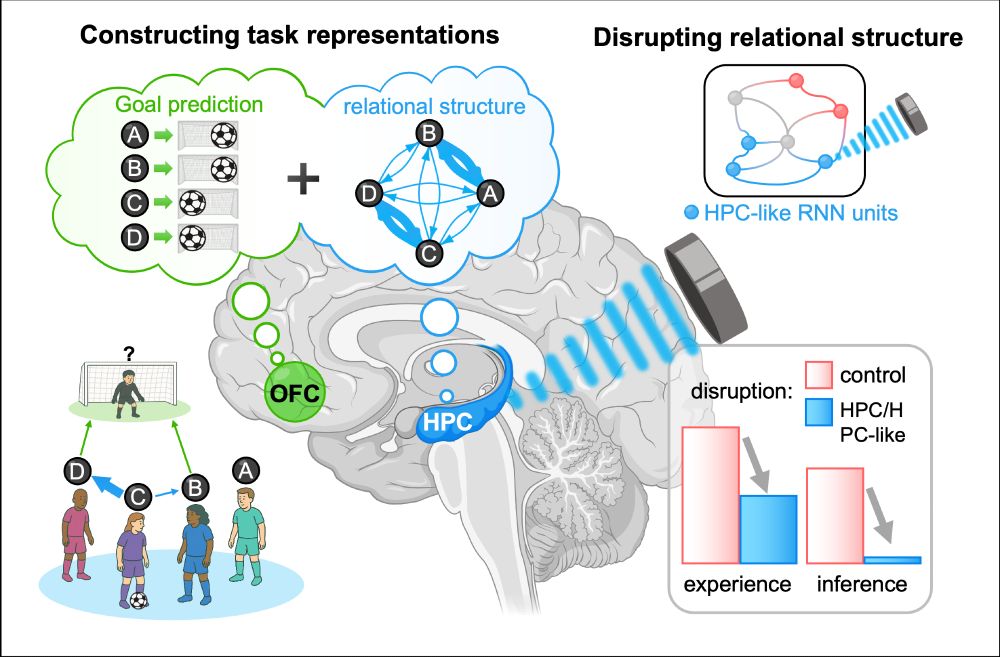
Using novel behavioral tasks, fMRI, RL & RNN modeling, and transcranial ultrasound stimulation (TUS), we demonstrate the causal role of hippocampus in relational structure learning.
Here is a 🧵 about why it is important to bring more independent ideas and expertise into this space.
alignmentproject.aisi.gov.uk

Here is a 🧵 about why it is important to bring more independent ideas and expertise into this space.
alignmentproject.aisi.gov.uk

Here is a 🧵 about why it is important to bring more independent ideas and expertise into this space.
alignmentproject.aisi.gov.uk
@icmlconf.bsky.social @cogcompneuro.bsky.social
@icmlconf.bsky.social @cogcompneuro.bsky.social
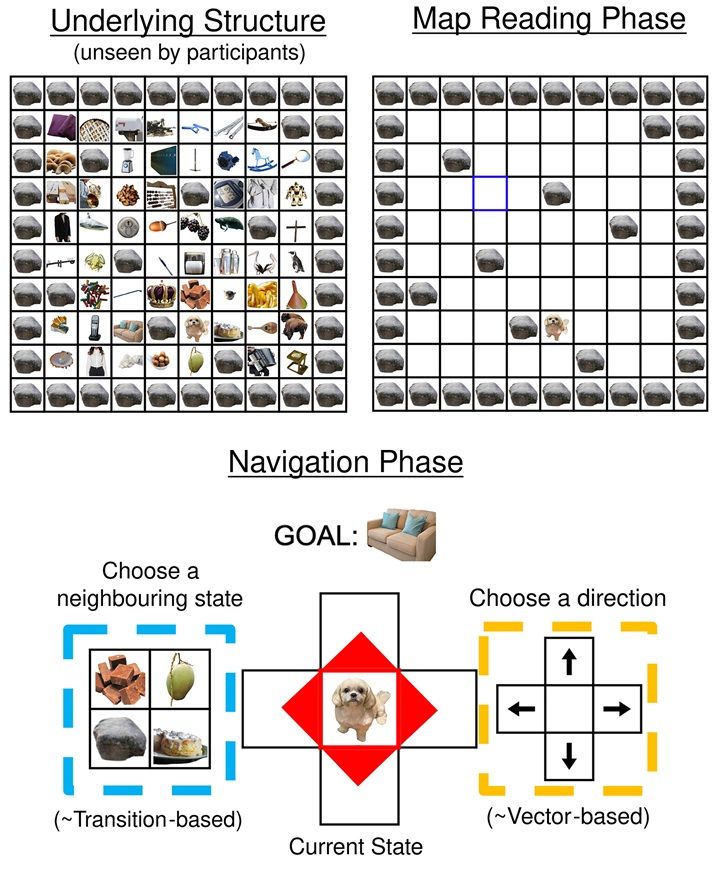
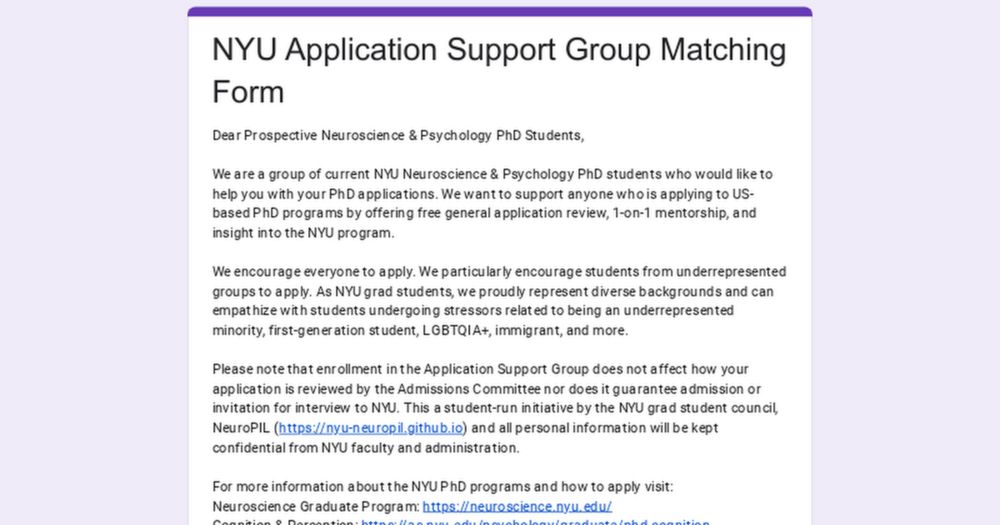
Gonda Brain Institute, Sharp Lab
We will explore how people build and deploy world models efficiently for planning and decision making. We will also seek to characterize how world models construal and use is biased in anxiety.
Deadline: 1 Sept 2025. Please share!
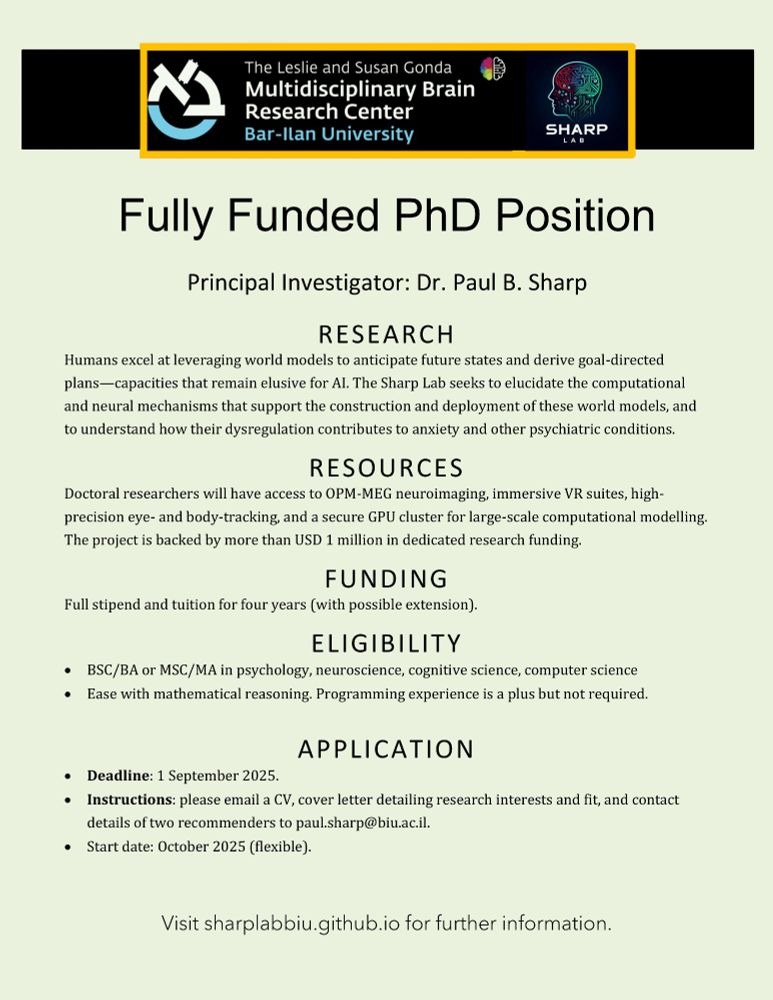
Gonda Brain Institute, Sharp Lab
We will explore how people build and deploy world models efficiently for planning and decision making. We will also seek to characterize how world models construal and use is biased in anxiety.
Deadline: 1 Sept 2025. Please share!
Apply here: apply.interfolio.com/170656
And come chat with me at #CogSci2025 if interested!
Apply here: apply.interfolio.com/170656
And come chat with me at #CogSci2025 if interested!
In a new preprint with @s-michelmann.bsky.social, we evaluate the reliability of OPM-MEG within & between individuals, and compare it to fMRI & iEEG during repeated movie viewing. 🧠
📄 doi.org/10.1101/2025...
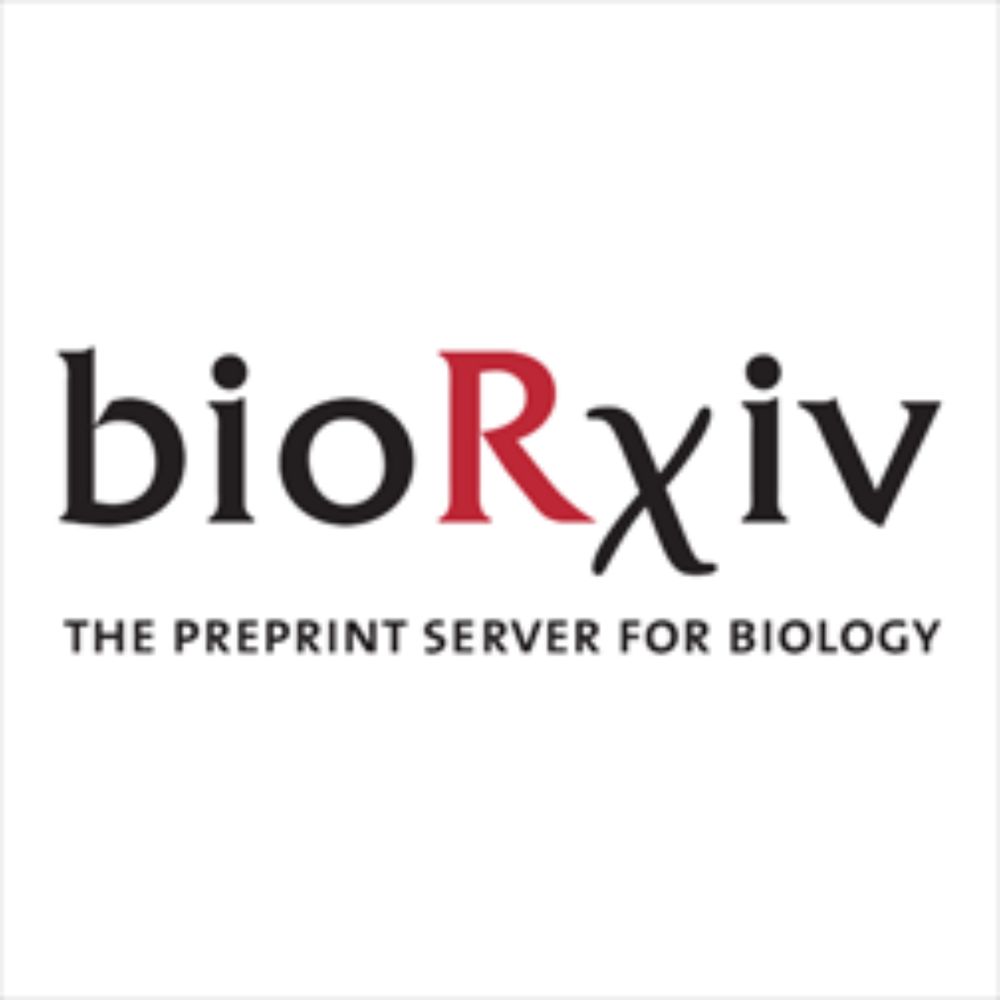
In a new preprint with @s-michelmann.bsky.social, we evaluate the reliability of OPM-MEG within & between individuals, and compare it to fMRI & iEEG during repeated movie viewing. 🧠
📄 doi.org/10.1101/2025...

In a new preprint with @s-michelmann.bsky.social, we evaluate the reliability of OPM-MEG within & between individuals, and compare it to fMRI & iEEG during repeated movie viewing. 🧠
📄 doi.org/10.1101/2025...


